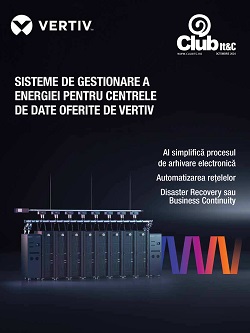Mazars, the international audit, tax and advisory firm, releases its new report, ESG: where are you on the journey? The report takes a closer look at the rise of environmental, social and governance (ESG) topics on business agendas. It sets out pathways for companies of all sizes, in different sectors and geographies, as they prepare to set off or speed up the pace of their sustainability journey.
 Commenting on the report, Chris Fuggle, Global Head of Sustainability Services at Mazars, said: „In our experience, doing ESG properly requires education, knowledge and a mindset shift: one that moves ESG from the periphery to the heart of a company. Senior leadership must understand that sustainability is not an end point but a journey, a path towards realigning the company’s purpose, strategy and business model in harmony with nature, people and communities. As the world changes, you need to keep moving. Sustainability strategy must become business strategy.”
Commenting on the report, Chris Fuggle, Global Head of Sustainability Services at Mazars, said: „In our experience, doing ESG properly requires education, knowledge and a mindset shift: one that moves ESG from the periphery to the heart of a company. Senior leadership must understand that sustainability is not an end point but a journey, a path towards realigning the company’s purpose, strategy and business model in harmony with nature, people and communities. As the world changes, you need to keep moving. Sustainability strategy must become business strategy.”
Providing business leaders with information and critical thinking points needed to broaden their understanding of ESG issues and the business opportunities likely to emerge, the report presents:
• An overview of the regulations for corporate ESG reporting: why change is happening and the impact it will have.
• Challenges the C-suite face in turning sustainability words into actions and the commitments they are making.
• Guiding principles on how senior leadership can strengthen their resolve and view ESG as a business opportunity.
• Geographical insights that provide valuable lessons on how others are addressing global and local ESG challenges.
• Views from Mazars global experts on three sectors ahead of the curve on ESG issues.
• Guidance on how to make a business case for ESG compliance and where to start.
• Top tips for moving ESG journeys forward.
Greenwashing is no longer an option as new regulations emerge
With regulators on both sides of the Atlantic looking to introduce stringent new rules on ESG reporting and new standardised international metrics to measure ESG, companies, including those in the supply chain, cannot afford to pay lip service to sustainability issues. They need to provide tangible evidence that they have a coherent sustainability strategy and are actively implementing it, and reporting metrics used can clearly demonstrate that they are progressing.
Even before the new rules apply, investors seeking to gauge risk exposure and large international companies looking to inject key sustainability goals into their supply chains have substantially increased the pressure on companies to become more sustainable. This affects firms in all sectors and of all sizes, including privately owned businesses and small and medium-sized enterprises.
ESG firmly on the C-suite agenda
The latest Mazars C-suite barometer found that three quarters of businesses planned to boost investment in sustainability initiatives. The biggest barriers to investing in ESG issues were identified as funding (52%), complexity (51%) and risk of low return (49%).
In terms of reporting, 63% of respondents already produced a sustainability report. Data quality was seen as the most challenging issue (39%), followed by prioritising what to include (29%) and data tracking (28%), according to the barometer findings.
„Looking at the three main identified barriers to ESG investing (funding, complexity, and low return), their intersection point can be the businesses’ need for a clearer and deeper understanding of the impact generated by embedding the ESG factors into their strategy and operations. Because when executives are presented with the full picture of both risks and new opportunities opening today, usually it is hard for them to ignore the return of the related investments.
On the reporting side, the respondents’ feedback is very similar to our experience. Prioritising what to include in the report can be confusing but it becomes quite intuitive as soon as the material topics are identified, and a clear structure of the report is contoured. Practically, the prioritised material topics will allow companies to create a solution with measurable outcomes. And at this point, the data quality concern intervenes as the users of the report will have to trust the accuracy, completeness, and relevance of the non-financial results presented. Without this trust, the stakeholders will not be able to use the sustainability report as it was intended by the company publishing it.”, mentioned Laura Negrișoiu, Sustainability Director, Mazars Romania.
Learning from common global challenges
Many issues companies face in meeting ESG requirements are common to all, regardless of geography. What companies can do to make sure they have a social licence to operate, which metrics to use to measure progression and how to navigate different standards and regulations are questions most companies around the world face. By discussing insights from work in their respective countries, Mazars partners shed light on how to address both global and local challenges.
Making the business case
While the risks of non-compliance are huge, there are significant benefits to be reaped by embracing ESG rules, including greater operating efficiency and lower costs. The report outlines why understanding the business case for ESG can help companies achieve the mindset shift required to stop treating ESG as a costly compliance burden and more of an investment in the future.
Who’s out front and why?
Different sectors of the economy face a range of common challenges in implementing ESG rules. Still, many have specific challenges and are at various stages of their sustainability journey. The report identifies three sectors that have had to be out front because they are among the most exposed to ESG-related societal pressures. In the process, they have learned some lessons that apply to others outside their sectors.
For the Romanian C-suite leaders, ESG is here to stay
The signals are clear, the interest for corporate sustainability on the Romanian market is increasing. According to Mazars 2021 C-suite barometer, 74% of the Romanian C-suite leaders are currently focusing on each factor of the ESG matrix and more than half of C-suite leaders (52%) mentioned that employee expectations are the top driver to invest in ESG.
But what about the leading cohort?
„From our experience, the sustainability leaders are the companies who genuinely understood that by embedding sustainability into their strategy and operations they are simply future-proofing their business. Usually, these are part of highly impacted industries or financial institutions, who acted swiftly on their sustainability risks but also sized the opportunities offered by the current transition period to a more sustainable economy: they entered new markets, strengthened their supply chain, or launched more sustainable products. But their intrinsic success factor is having at least a sustainability champion who sincerely believes in the need for change and is leading the process with clarity and a practical approach.”, mentioned Răzvan Butucaru, Partner, Financial Services & Advisory Leader, Mazars Romania.





























